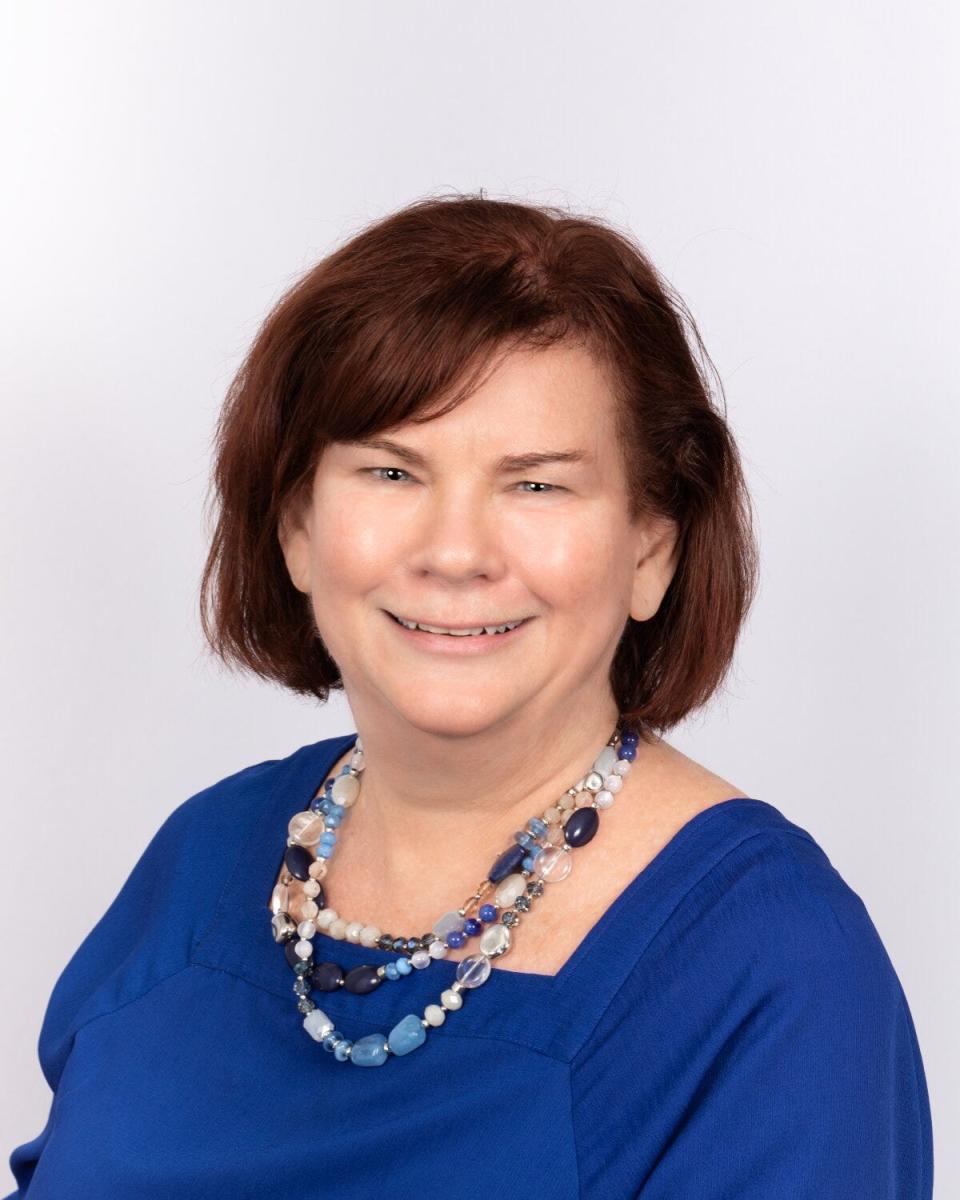What you need to know about 'treatment-resistant' depression — and how to combat it
- Oops!Something went wrong.Please try again later.
- Oops!Something went wrong.Please try again later.
- Oops!Something went wrong.Please try again later.
May’s Mental Health Awareness Month got off to a tragic start when, on the afternoon of April 30, news broke of country music legend Naomi Judd’s death.
The world learned of her death when sisters Ashley and Wynonna Judd posted a statement on Instagram that read “Today we sisters experienced a tragedy. We lost our beautiful mother to the disease of mental illness. We are shattered. We are navigating profound grief and know that as we loved her, she was loved by her public. We are in unknown territory."
A couple of days later, People magazine reported that Judd, 76, had died by suicide, and multiple outlets soon confirmed that.
And on Thursday, Ashley revealed in a "Good Morning America" interview that her mother had died of self-inflicted gunshot.
Naomi had long been open about her struggles with depression.
Previously: Naomi Judd memorialized by daughters Wynonna, Ashley
Archive: Singer Naomi Judd talks about her struggle with depression, mental illness
And: Ashley Judd reveals mother Naomi Judd's cause of death

In a 2016 interview with Robin Roberts on ABC’s "Good Morning America," she said, “What I’ve been through is extreme. My final diagnosis was severe depression — treatment-resistant, because they tried me on every single thing they had in their arsenal.”
That same year in an interview with The Palm Beach Daily News, she said, “I know what it’s like to go down to the bridge and be ready to jump off. It’s going through it that’s exquisitely harrowing. You have to have somebody to watch you, somebody to make sure you are on the right meds. My husband (Larry Strickland) hasn’t let me out of his sight in two-and-a-half years.”
Dealing with depression
In the immediate aftermath of a high-profile suicide of a beloved celebrity, calls to suicide-prevention hotlines tend to increase.
It happened after Robin Williams in 2016.
In happened after Anthony Bourdain in 2018.
And no doubt it will happen now.
That said, it’s also important for people to gain a better understanding of what “treatment-resistant” depression really means — and how it can be combatted.
“Generally speaking, treatment-resistant depression is when a person has tried two courses of different antidepressants without seeing an improvement in their symptoms,” says psychotherapist Anne Posey, regional director of the Behavioral Health Center at Cleveland Clinic Indian River. “Antidepressants are typically prescribed for at least six or eight weeks before a clinician will determine they were not effective.”

Boca Raton psychotherapist Kristen Bomas says that for a clinician to actually determine a patient has treatment-resistant depression can take a while.
“When the patient has exhausted the various combinations and dosages of medications and has also tried neurological brain-stimulation treatments with minimal to no relief or change, the clinician begins addressing the possibility of treatment-resistant depression,” says Bomas. “This can take a long time before it is diagnosed because there are so many ways to treat depression.”

When this happens, notes Posey, clinicians and therapists still have several options.
Patients can try other strategies — such as cognitive behavioral therapy.
“Cognitive behavioral therapy helps a person connect their thoughts and feelings to the behaviors that can impact their mood,” explains Posey.
Many therapists also implement dialectical behavioral therapy with their clients.
According to Posey “DBT teaches skill-building and problem-solving strategies that can be particularly useful for treatment-resistant depression and chronic suicidal thoughts or self-injury.”
Bomas believes it’s vital to get to the source of a person’s depression, even if it is treatment-resistant.
“Depression at this level always has a history of trauma,” she says.
(In addition to being open about her treatment-resistant depression, Naomi Judd also spoke about being molested throughout her childhood by an uncle, and also was the victim of sexual assault just months before she became pregnant with older daughter Wynonna at age 18.)
Severe depression also often leads to “self-medication” via alcohol or other non-prescribed drugs.
In these situations, Posey has observed that “some patients may be reluctant to share this type of information with their clinician for fear of being labeled or dismissed. So it is imperative for the clinician to be understanding and non-judgmental when trying to determine what, if any, other current behaviors could be further exacerbating the patient’s depression.”
Alternative treatments
In recent years, a growing segment of the medical community is embracing the physician-supervised use of certain substances — such as ketamine and MDMA, which are not traditionally thought of as medicinal — to help treat people suffering from severe depression and/or suicidal ideation.
Both Bomas and Posey believe this approach can be effective under the right circumstances.
“If a patient is considering an alternative method, they should do their due diligence and ask about the clinician’s experience with this type of treatment, what safety protocols are in place, how is ‘success’ measured and what success rate do they have with the treatment,” recommends Posey. “Also, discuss if insurance will cover this type of treatment because it can be quite expensive.”
Bomas notes that medically supervised ketamine users often experience a “dissociative effect” from the drug.
“In other words, the patient ‘breaks’ from their current reality to a different one, which enables them to become aware of so much more,” explains Bomas. “Ketamine does not ‘block’ the depression — but rather opens the patient to a ‘new world’ in this life.”
Bomas explains that “MDMA has a hypnotic effect and evokes pleasurable emotions. It is generally being used as a short, immediate-acting treatment. Anecdotally, many people speak positively about the effects it’s had on them; but more research needs to be done.”
Recognizing suicidal ideation
If you suspect a friend or loved may be contemplating death by suicide, Posey recommends you first ask the person directly and with specific language, “Are you thinking of killing yourself?”
“There is a misconception that asking the question will put the thought in someone’s head but this is not true,” says Posey. “If the person is thinking of suicide and hasn’t spoken of it, it’s happening in the dark. Asking the question can bring it into the light so that help can be provided.”
Bomas says to be especially vigilant when severely depressed people suddenly start to improve.
“It is when a depressed person starts to feel better that you need to take note,” warns Bomas. “Oftentimes, when they are in the depth or pain of the depression, they do not have the strength to attempt death by suicide. It is when they begin to strengthen emotionally that they gain the strength to follow through on their plan.”
These are among the common warning signs of suicidal ideation:
Talking about suicide. Statements such as “I want to kill myself” or “I would be better off if I weren’t here” or “I wish I were dead” should be taken note of.
Withdrawal from usual activities.
Change in eating or sleeping habits.
Increased use of drugs and/or alcohol.
Doing risky or self-destructive things, such as driving recklessly.
Giving away belongings and getting affairs in order without there being another reason to do so.
Saying “goodbye” to friends and family.
Posey believes that “as a society, we need to combat the stigma that surrounds mental illness so that people get appropriate help earlier and more often.”
If recent history is any predictor then, at least in the short term, Naomi Judd’s tragic death by suicide may have that effect.
Suicide Prevention
If you or a loved one is contemplating suicide, call the 211 Helpline in Palm Beach County or the Treasure Coast, or the National Suicide Prevention Hotlines at either 800-273-TALK (8255) or or 800-SUICIDE (273-8255).
This article originally appeared on Palm Beach Post: Naomi Judd and 'treatment-resistant' depression and suicide

